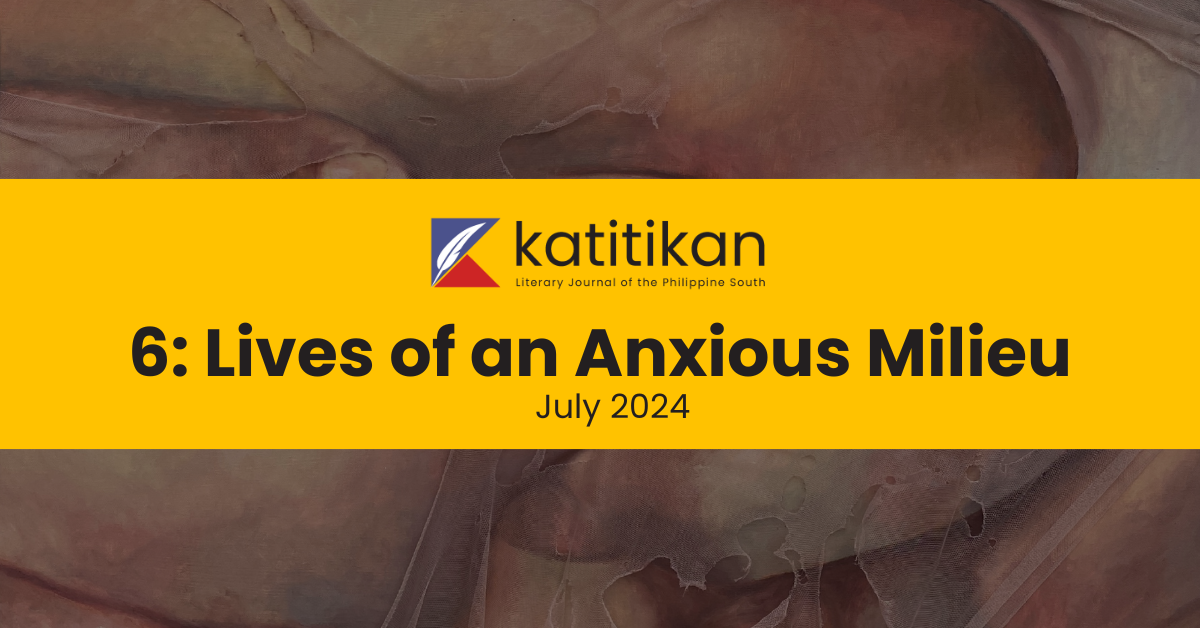July 2024
-

Katitikan Issue 6: Lives of an Anxious Milieu
The 6th issue of Katitikan explores “Lives of an Anxious Milieu,” reflecting uncertainty, unease, and resilience in Southern Philippine literature.
-
Isang Araw sa Labas ng Bahay at Iba Pang Shits
MGA TAUHAN Bunso – matinis ang boses, pinakabata, sakitin, babae Ali – katamtaman ang taas, lalaki Van – malaki ang pangangatawan, lalaki Rhea – matabang ale, 45-50 ang edad Jay – bana ni Rhea, maliit na lalaki, under de saya, 50-55 ang edad Tagpuan: Gabi at tahimik ang paligid. Makikita ang isang malaking karatulang…
-
Lugdas
(Dulang May Isang Yugto) Mga Tauhan: Pilar – matagal ng kasintahan ni Ramon at sabik na sabik na naghihintay sa kanyang pagbalik galing sa Mindanao kung saan kasalukuyang nadestino ang sundalong kasintahan. Pinangakoang pakakasalan sa pagbalik ni Ramon mula Mindanao. Ramon – isang sundalong na destino sa Mindanao. Tapat sa trabaho ngunit nasangkot sa…
-
On “Te, tabangi ko bi”
“Te, tabangi ko bi,” is a phrase that echoes frequently through my household. It’s a magical phrase, you see, consisting of words that transfix me into giving my utmost attention to these calls several times throughout the day. It’s like a signal I’m forever conditioned to adhere to. Whenever I hear those shrill voices on…
-
Concealer
My dad died five months ago on November 7th. Ever since his passing, I loved wearing makeup. My mom would wake me up at 5:30 AM every day for school, but that was never enough time for me to fix my appearance. We had to leave by 6:15 AM if I wanted to arrive…
